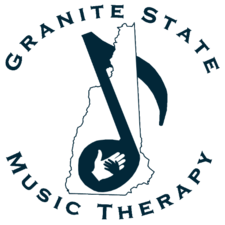A Holistic Approach to Safety
The easiest way to keep ourselves physically safe is to plan ahead. For example, very recently, New Hampshire became crowded with leaf peepers soaking in the gorgeous reds, oranges, and yellows. Unfortunately, this created an unsafe situation for many. Inexperienced and ill-equipped hikers were physically harmed by not following officials' urges to dress in layers, bring food, water, maps, and other proper gear. Rescues have increased in light of these risky behaviors. In instances like these, safe practices such as researching the area you’re hiking in prior to arrival, bringing a light source and a map with offline access, and packing food and water—even on a short hike—can save your life and prevent injuries to others on the trail.
Safety is a huge piece of the hierarchy of needs that human beings possess. But what is safety? We all know the basics, like don’t touch the hot stove and don’t open the door to strangers, but how do we decide what is and is not safe for us when the answer isn’t quite so obvious? Merriam-Webster defines safety as “the condition of being safe from undergoing or causing hurt, injury, or loss.” To truly understand how to protect ourselves, we must consider the different ways in which we can be hurt, injured, or lost: physically, psychologically, and emotionally.
Emotional safety and psychological safety go hand in hand. If we don’t trust our support systems, we don’t feel safe to express ourselves freely. It’s always okay to walk away from people and situations that do not align with our goals in life. One way to keep ourselves emotionally safe is by trusting our support systems. When we surround ourselves with good-willed people, we set ourselves up not only to survive but also to thrive.
Psychological safety is important to our sense of self. Being able to express ourselves without fear of ridicule is a crucial part of developing our identity. In music therapy, we encourage our clients to express themselves freely through music and play. The goal behind this is to develop self-concept through expression. Outside of music therapy, we can surround ourselves with people who align with our values and encourage us to speak our truths while supporting our interests so that we may continue to develop our identity.
Safety is incredibly important to our daily lives. Beyond the obvious ways we remain safe—like buckling seat belts, looking both ways before crossing the street, and locking the doors at night—we ensure our safety by considering our physical, psychological, and emotional needs. Performing check-ins with yourself throughout the day and honoring what your body is requesting (e.g., rest, food, shelter, a hug, encouraging words, etc.) is a great way to remain physically, psychologically, and emotionally safe.
Author: Kelly Weaver, MT-BC
Editor: Cassadi Kulak, MT-BC






